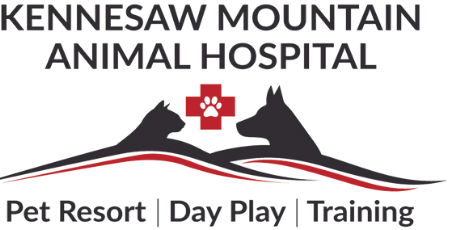
FAQs Kennesaw Mountain Animal Hospital

There is no question too big or too small for our veterinary team. Below are some answers to our most common questions.
Frequently Asked Questions.
When can I enroll my puppy in training?
Are dog parks good for my pet?
They pose a variety of health and safety hazards. Without knowledge of the other dog’s backgrounds, it’s a risky situation at best. Other pet owners may not be aware of the risks… or mindful of their pets.
How does dental health affect my pet?
Can I give aspirin or ibuprofen to my pet?
Why is my pet behaving differently?
Change in appetite, lethargy, low energy, aggressiveness, inappropriate elimination, and vocalization are all signs of an underlying issue. Though the symptoms began recently, the issue began well before the symptoms began to show.
What are the benefits of a wellness plan?
Our wellness plans spread out the cost of services throughout the year…much easier on your wallet. Part of your savings includes no exam fee when you come for a visit.
Why is bloodwork important?
It provides a baseline of values to reference the next time your pet needs treatment. It also detects early signs of cancer, infection and disease, and ensures organs are properly functioning.
Is grain free good for my pet?
On July 19, 2018, the U.S. FDA issued an alert regarding grain-free diets and a possible link to dilated cardiomyopathy (a decreased ability to pump blood); often resulting in congestive heart failure. The correlation of peas, lentils, chickpeas, beans, and potatoes is the focus of the investigation and if your pet is currently on a grain free diet, the FDA urges pet owners to consult their veterinarian.
